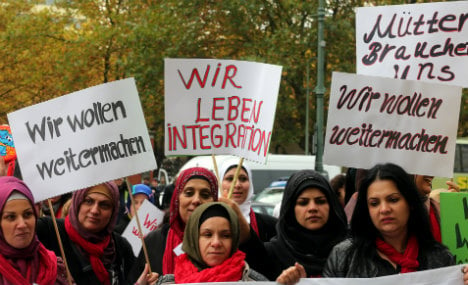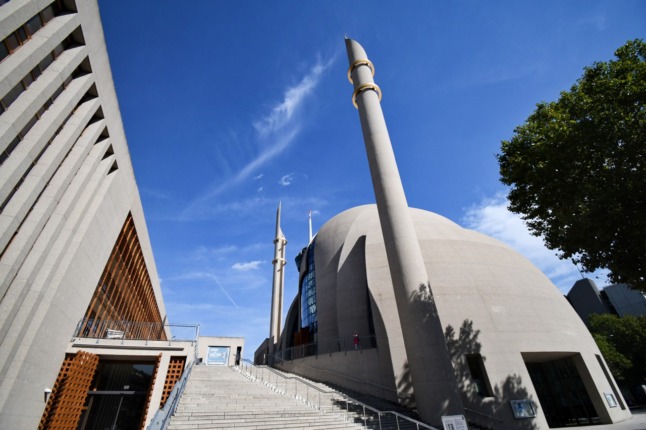The survey was carried out in November – before the massacre of journalists in Paris by Islamist gunmen – but as the numbers attending anti-Muslim rallies in Dresden and other cities began to escalate.
The Bertelsman Foundation think tank survey looked at the perception of Islam in Germany from the eyes of Muslims and non-Muslims. Of the non-Muslims surveyed, 57 percent thought that Islam was threatening or very threatening to German society.
TNS Emnid, which conducted the survey for the Bertelsman Foundation think tank, said it's a rise of four percent since 2012 when the study was last conducted. The research institute surveyed 937 non-Muslim Germans for the survey in November 2014.
Even more respondents felt that Islam did not fit into western society: 61 percent said not really or not at all. A rise of nine percent over 2012.
Forty percent felt like "foreigners in their own country" because of the perceived increase in the Muslim population.
On the other side, Muslims living in Germany feel "closely connected" to the state and society in which they are living in, Yasemin El-Menouar, a Islam expert for Bertelsmann publishing house told Spiegel Online.
Almost a quarter of non-Muslim respondents – 24 percent – feels that Muslims should not be allowed to immigrate to Germany.
Asked on Thursday about relations between Muslims and non-Muslims in the wake of the
Paris rampage, Chancellor Angela Merkel, who condemned the attack as "despicable", sought to calm fears.
"We have very good ties with the vast majority of Muslims in Germany. All have been clear in their statements on terrorist attacks," she said.
She acknowledged that there were also "unfortunately some individuals in Germany" who had "joined the jihadists" and said the country must maintain existing security measures.
"We do everything we can so that people of every faith — be they Jewish, Christian, Muslim or of no religion at all — will be protected in the same way."
The attitudes of non-Muslims to their Muslim neighbours only does more to create separate societies within Germany as they further live under the shadow of extremist groups like al-Qaida and Islamic State (Isis).
Nine out of 10 Muslims interviewed said they had regular contact with non-Muslims. Half say they have as much contact with people outside of their religion as they do with other Muslims. Only nine percent of respondents said they had no contact with non-Muslims. Meanwhile, 63 percent of non-Muslims reported having no contact with Muslims.
Furthermore, 90 percent of Sunni Muslims, the largest sect of Islam and often considered the most orthodox, said that democracy was a good form of government. Fifty-eight percent supported same-sex marriage.
There are four million Muslims in Germany, of which nearly three-quarters have Turkish roots. Most of the Turkish Islamic population considers itself Sunni-Muslim.
The authors said that anti-Islam stances could be found regardless of class or education level, but that younger people and those with personal contacts with Muslims showed less prejudice.
More than three-quarters of respondents aged 55 and older (76 percent) felt that Islam was a threat. Meanwhile, 54 percent of respondents aged 16 to 39 felt threatened by Islam, though that is still more than half.
Germany has been rocked by anti-migrant marches in the eastern city of Dresden, which began small in October but have grown in support over the last month, now attracting around 18,000 people each week.
Pegida issued a statement on its Facebook page saying that the killing of 12 people by Islamist gunmen at the satirical paper Charlie Hebdo in Paris Wednesday confirmed their views.
"The Islamists, which PEGIDA has been warning about for 12 weeks, showed France that they are not capable of democracy but rather look to violence and death as an answer," it said. "Our politicians want us to believe the opposite. Must such a tragedy happen here in Germany first???"
Chancellor Angela Merkel has urged Germans not to attend the marches, accusing them of stoking "hatred", and encouraged counterdemonstrators, who have managed to outnumber PEGIDA protesters in recent weeks at gatherings across the country.



 Please whitelist us to continue reading.
Please whitelist us to continue reading.